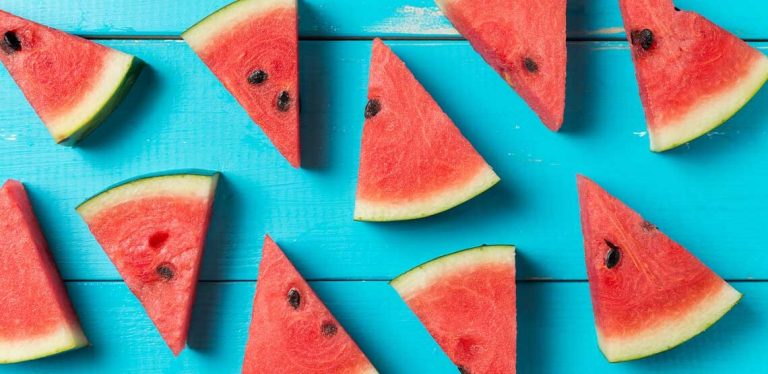What Are the Best Foods for Acid Reflux?
Adjusting your diet is one easy way to reduce acid reflux and heartburn symptoms. Many people experience the painful, burning sensation that travels up your chest and throat, so in this article we're going over six different foods to help combat it. But do you know what is actually happening in the body when you experience one of these attacks? And what are the best foods for acid reflux?
What is Acid Reflux?
Acid reflux, or gastroesophageal reflux, is when the contents of the stomach move back up through the esophageal sphincter and into the esophagus (the tube in your throat that connects your mouth to your stomach). You will feel a burning sensation in your chest and maybe up into your throat as the acidic contents of your stomach move upwards.
Usually, the lower esophageal sphincter remains closed after eating, which prevents the stomach's contents from traveling back up the throat. But, in certain circumstances, it opens back up, resulting in heartburn.
There is nothing pleasant about this condition. Luckily, by understanding the cause behind acid reflux, you can take steps at home to minimize symptoms and enjoy your food without fear. However, if you experience bouts of acid reflux more than twice a week, it may have progressed to something called gastroesophageal reflux disease, and you should get checked out by a doctor.
What Are the Best Foods to Eat for Acid Reflux?
One of the best things you can do to prevent heartburn is to eat in moderation. Oftentimes eating past the point of fullness or enjoying certain types of foods too often and in too large an amount, can trigger an episode of acid reflux. In addition to eating in moderation, some foods can help prevent heartburn or soothe its symptoms.
1. Fiber
Eat high-fiber foods, such as whole grains (oats, brown rice) and root vegetables, such as sweet potatoes, potatoes, beets and carrots may help acid reflux symptoms. You can also try green vegetables, such as lettuces and green beans. These foods are high in fiber, fill you up and are relatively easy to digest, which puts less pressure on your stomach and digestive system.
2. Teas and Herbs
Try soothing teas or herbs, such as ginger and fennel. Both help to soothe digestive issues and taste great, especially with a dollop of honey.
3. Dairy
If you are not sensitive to dairy or lactose intolerant, yogurt or some low-fat milk can provide some temporary relief of acid reflux symptoms.
4. Apple Cider Vinegar
On Johns Hopkins’ list of foods and remedies for acid reflux, apple cider vinegar has a lot of anecdotal evidence as a remedy for minimizing or managing symptoms. Try adding a teaspoon or two to a small glass of water (and maybe some honey) before a big meal.
5. Foods High in Water Content
Watery foods such as watermelon, broth-based soups, cucumber, celery and herbal teas can help dilute stomach acid if too much acid is your trigger.
6. Foods With High pH Levels
Foods with a high (alkaline) pH can be a nice addition to your diet if you struggle with acid reflux since they will not aggravate already elevated stomach acid levels. Foods such as bananas, melons, nuts, most other fruits and vegetables, soy and legumes are all typically lower in acidity.
As you can see, there are plenty of great foods you can incorporate into your diet to help prevent or manage symptoms of acid reflux.
What Foods Should You Avoid With Acid Reflux?
While each person may have certain foods that are triggering just for them, some common foods and drinks tend to be more commonly associated with heartburn. So, if you struggle with regular acid reflux, you might want to test whether these foods aggravate your symptoms.
- Caffeinated drinks. This includes coffee and tea — opt for herbal or decaf teas and coffees.
- Alcohol. This can relax the sphincter muscle in the esophagus and may stimulate acid production in the stomach.
- Carbonated drinks. This can include soda, beer, cider and bubbly water, as the bubbles in these drinks can put more pressure on the stomach and lead to heartburn.
- High fat. This includes processed foods, fast foods, or fried foods.
- Pizza. It often contains tomatoes (a high acid food) and lots of fat from the cheese.
- Spicy foods. Be sure to stay away from hot peppers and chilies.
- Chocolate. It contains fat and caffeine, which can be triggering for some folks.
- High acid foods. This includes tomatoes and citrus fruits, which can make stomach acid problems worse.
- Peppermint. Even though this food can soothe indigestion in some people, it is a trigger for acid reflux in others.
Related Search Topics (Ads)
What Are Some Causes of Acid Reflux?
There is no one cause of acid reflux, but several factors can contribute to it.
One of the most common causes of this condition is something called a hiatal hernia. This condition happens when the upper portion of the stomach and the esophageal sphincter move above the muscle that separates your stomach from your chest, the diaphragm. Typically, when the stomach and esophageal sphincter are in the right place, the diaphragm helps to keep stomach acid where it belongs, preventing heartburn. But if there is a hiatal hernia, the acid is more freely able to pass back through the esophageal sphincter and into the throat.
Other common causes of heartburn include:
- Eating meals that are too large, as this can put too much pressure on the ES, causing it to open back up.
- Lying down as soon as you have finished eating.
- Eating too close to bedtime.
- Smoking.
- Pregnancy.
- Taking certain medication, such as muscle relaxants, blood pressure medications, ibuprofen, or aspirin.
- Drinking certain things such as caffeine, alcohol, or carbonated beverages.
All of these factors can contribute to the experience of heartburn, so by limiting the above activities, you may solve your issue.
Low stomach acid is another common cause of heartburn. I see in my practice that it is less well recognized by the medical community. Often, we think that acid reflux is caused by too much stomach acid, but I have seen the opposite happen in many of my clients.
What happens is that for various reasons, they are not producing enough stomach acid to properly digest their food and signal to the pyloric sphincter (the one at the bottom of the stomach) to open up and release the acidic chyme (chewed up food) into the small intestine. When pH levels rise too high and become less acidic, it causes the pyloric sphincter to close up and prevent food from moving through it.
This food can then sit in the stomach for longer periods, building up gas and pressure, forcing the esophageal sphincter to open up, thus leading to heartburn. If you think low stomach acid may be your issue, I suggest working with a qualified naturopath, nutritionist, or healthcare professional to test the theory and find a treatment.
How to Prevent Acid Reflux
Some easy ways to prevent acid reflux include:
- Eat smaller meals throughout the day.
- Avoid eating right before you go to bed.
- Try tilting the head of your bed at a slight angle to elevate your upper body.
- Quit smoking.
- Eat more fiber to help you feel fuller so that you do not overeat and regulate your digestion.
- Avoid triggering foods or drinks. These may be different for each person, so some experimentation may be required to find your triggers.
If you have tried all of the above recommendations and still are not seeing improvements, check in with your doctor, a naturopath, or another qualified healthcare practitioner to get to the root cause of your digestive issues.
Article Resources
- Mayo Clinic (Acid reflux and GERD: The same thing?)
- WebMD (What Is Acid Reflux Disease?)
- Biology Dictionary (Pyloric Sphincter)
- Johns Hopkins Medicine [GERD Diet: Foods That Help with Acid Reflux (Heartburn)]
- University Hospitals (The Best and Worst Foods for Acid Reflux)
- WebMD (What Is Acid Reflux Disease?)
- MedicalNewsToday (What is acid reflux?)

